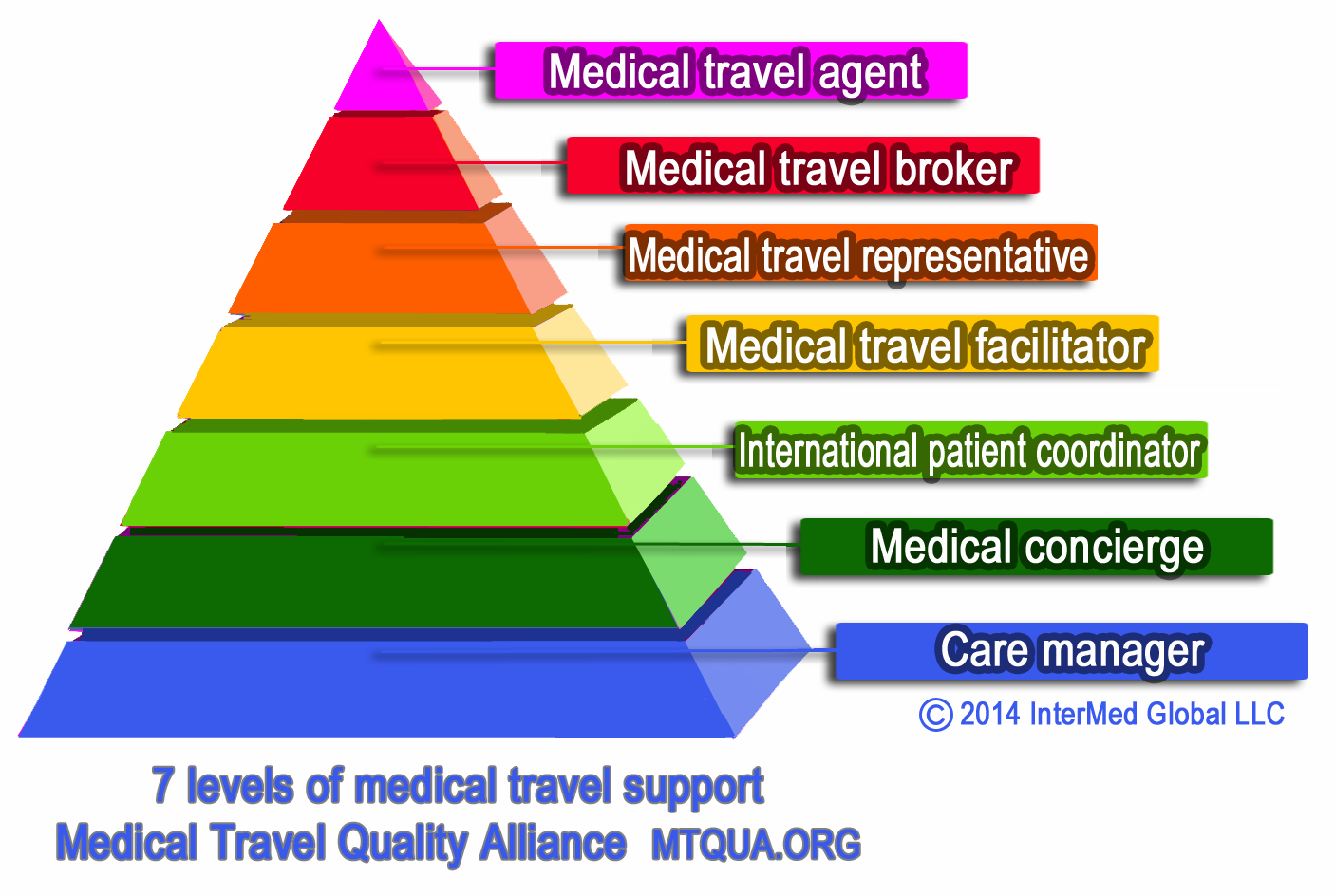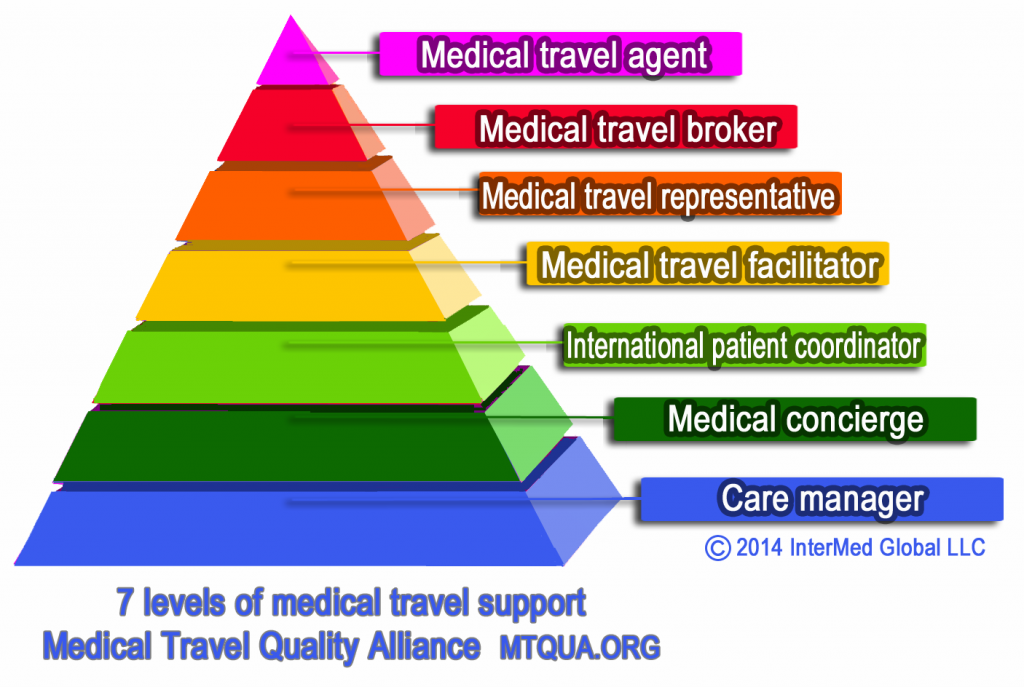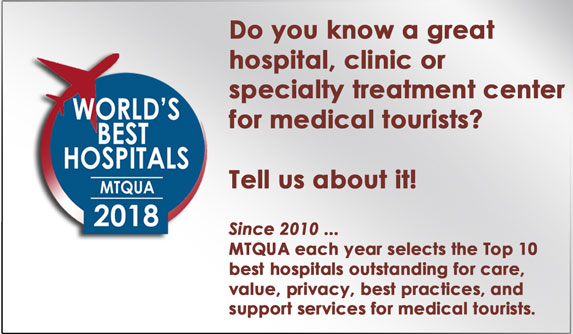 Sooner or later, all medical travelers need help.
Sooner or later, all medical travelers need help.
You won’t know when this help will be needed or what you will need to do.
A professional business woman on a medical vacation was suddenly and unexpectedly faced with one of the toughest decisions she would ever have to make.
She had to choose between having a mastectomy and foregoing the eagerly anticipated “boob job” or returning home immediately to more tests, more delays and more doctors’ office visits.
In an instant, her excitement about enhancing her body changed to panic over the thought of having to disfigure it permanently.
Alone, she reached out to me, her closest support. “If I go home, I have no one who can support me through this and who can care for me,” she said. “It’s better if I stay and have surgery here.”
Help for medical tourists is unpredictable
Every health care provider and every medical tourism service provider offers help of one kind or another to medical tourists. Because medical care can be unpredictable, the kind of help medical travelers get must covers a wide range of situations.
From changing a flight or staying in a different hotel to requesting a prescribed medication, understanding discharge instructions or even making a life or death decision, a medical traveler in a foreign land welcomes – and often needs – support and guidance.
What kind of help, who will give it, and how much it will cost are questions with almost as many answers as there are medical travel agents, facilitators, international patient coordinators and care managers.
Family and friends get in the way
A medical tourist’s strong desire for support is often the reason family members or close friends come along on the medical trip.
But family and friends are not the answer. They may hinder good treatment or care and are often advised to stay home and not accompany the medical traveler.
A recently published Simon Fraser University study led by Valorie Crooks, “You’re Dealing with an Emotionally Charged Individual…”: An Industry Perspective on the Challenges Posed by Medical Tourists’ Informal Caregiver-Companions, found that
Support in hospitals and medical tourism companies
Our client got the help and the care she needed. We arranged a second opinion, found the most appropriate surgeon, provided post-discharge care, and of course, gave emotional support, none of which an accompanying companion could do.
With family and friends not available, the medical tourist must rely on assistance and support from the medical tourism industry.
To the medical tourist, the available assistance and support may seem disorganized, unqualified, or confused. But today, with the guidance of a common set of international standards and principles for care and services through medical tourism certification, this confusion and chaos is being reduced.
Depending on the degree of health-related help needed, a medical tourist can get assistance from any of these 7 levels of support.
7 levels of support for medical travelers
Here are the 7 levels of assistance for medical travelers, from the most basic help to the most demanding and challenging support.

1. Medical travel agent
American health care consumers tend to assume that a travel agent that advertises “medical tourism” packages or services can provide entrée to “the best” hospitals and “the best” doctors. They expect them to help with passports and visas, book appointments at clinics and hospitals in medical destinations as well as make flight and hotel arrangements. This is certainly so for American health care consumers wishing to choose a medical treatment or procedure.
In Europe and the Middle East, the medical “travel agent” is not as common a figure as in America. Europeans and Middle East residents tend to travel more frequently, so their need for travel assistance is less unless they need specific visa assistance. Also, European travel agents may be legally hampered in the services they can offer to medical travelers.
Who pays? Medical travel agents often say their services are “no cost” or “free of charge” because they make their money from commissions just like travel agents.
2. Medical tourism broker
A medical tourism broker is often visible as a website that provides a large range of countries, hospitals, even doctors, that can treat a multitude of conditions and diseases. The website usually carries written descriptions of these providers, and prominently features those providers who pay for placement and preference.
Even these websites offer hundreds of combinations of results, many brokers circulate inquiries from medical tourists only among a preferred handful of providers. Some brokers publicly state the names of the providers they work with and only offer their services.
Who pays? Brokers collect commissions from providers, charge for advertising, and may charge a fee to medical tourists who submit an inquiry.
3. Medical tourism representative agent
Medical tourism representative agent can most often be found in countries which provide large numbers of patients such as Indonesia, Bangladesh, Myanmar, Nigeria, and Mongolia.
Some agents are also doctors and refer their own patients; others are travel agents who handle all arrangements including foreign currency payments, especially in countries where foreign currency controls exist.
Who pays? The representative agent usually represents a single hospital and is most likely paid directly by the hospital either on salary or a salary and bonus combo. Some hospitals do not pay their agents but allow them to charge higher costs directly to the patients. Commissions, etc. for services rendered are common.
4. Medical travel facilitator or medical tourism facilitator
The term “facilitator” has emerged to perhaps differentiate those who are essentially travel and tour agents from those who may provide health care related services and arrangements and “ground” services with our without making travel arrangements. They may do the initial client intake by email to “qualify” the patient for the hospital or doctor. They may also visit the patient while in the hospital.
They specialize in health and wellness client services. Making travel arrangements or hotel bookings are not a primary function as most are not licensed travel agents. Some will help with travel by making suggestions or introducing a licensed travel agent.
Who pays? Medical travel facilitators often make their money on commissions or discounts from hospitals or doctors, and maybe hotel bookings. Some add on a service fee and charge the consumer for it.
Their commission rates, as well as the source of their commissions, should be transparent to the consumer and available in writing when asked.
5. International patient coordinator or patient navigator
The patient navigator, a term first made popular by the Cleveland Clinic in the US, is now trending in many hospitals, and even outside the US. The role of the “patient navigator” is to smooth the path of the patient inside the hospital and during treatment. The patient navigator is not a patient advocate nor advisor.
The role of the international patient coordinator is specifically created for a hospital employee or an employee of a medical tourism company to deal exclusively with all the administrative issues and comfort concerns of international patients.
The international patient coordinator may be the senior person in charge of an international department or international patient services section or may be any one of several employees working in the international department of a hospital.
It is possible that a corporation’s human resources department may have a designated international patient coordinator to assist company employees who are choosing to travel for medical care.
Who pays? The employer. The international patient coordinator is employed by a hospital, a clinic, a self-insured corporation, or a medical tourism company. The patient navigator is an employee of a hospital.
6. Medical concierge or medical butler
“Medical concierge” is a misunderstood term. When first used in medical tourism in 2004, it was in the context of providing personal attention and services within a concierge medicine environment.
However, as the term “concierge medicine” is unknown outside the US, that meaning of the term never took hold and the medical concierge has evolved into someone providing hospitality functions such as visiting the patient in the hospital.
Similarly the medical butler is someone who handles similar hospitality functions and provides other related personal assistance as befits a client of wealth or fame while in the medical or wellness setting. A medical butler is often provided for packaged wellness travel by groups.
Some medical butlers may have health or wellness related training as nurses nurse practitioners, sports medicine trainers, etc. that they may use to provide care-related services. Those who do should be able to provide proof of this training.
Who pays? The medical butler is a medical travel company employee. The company may charge separately for a medical butler’s services or include them in a cost of
7. Beyond the comforts – facing reality
Most medical travelers are not aware that the risks they face when having surgery abroad are greater than those they face for the same surgery at home. This is the case for those who live where medical treatment is modern and available, yet they choose to travel abroad for their medical needs.
Medical travelers who travel outside their country for treatment because the level of health care at home is of a low standard face greater risks as well, but often these are a different set of risks.
As these risks are becoming better known, care coordinators, care managers, patient representatives and patient advocates are appearing to help medical tourists with the care needs and issues that may come up that interfere with their getting better faster.
Who pays? The medical traveler bears most of the cost. Some insurance companies may include the cost of a professional care manager as an appropriate cost of treatment and will reimburse it.
Part Two of this article will describe Level 7 and discuss reasons why medical tourists may want and need to have a higher level of support available.
Image:stockimages / FreeDigitalPhotos.net
Related articles
Are Medical Tourism Commission Payments Ethical?
Are Medical Travel Companies Practicing Medicine Without A License?

 >
>